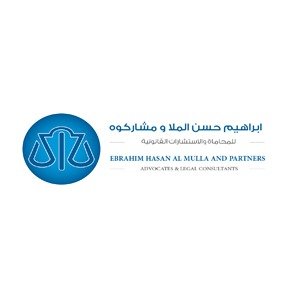Best Divorce & Separation Lawyers in Ras al-Khaimah
Share your needs with us, get contacted by law firms.
Free. Takes 2 min.
Free Guide to Hiring a Family Lawyer
List of the best lawyers in Ras al-Khaimah, United Arab Emirates
United Arab Emirates Divorce & Separation Legal Questions answered by Lawyers
Browse our 2 legal questions about Divorce & Separation in United Arab Emirates and read the lawyer answers, or ask your own questions for free.
- No fault divorce
- CASE Highlights My wife (44 years) and I (58 years) are from India, Hindu family staying in Abudhabi, UAE. My wife and I were married in Aug 22 (Second marriage for both) in Abudhabi Civil court. I want to file a No Fault Divorce, but my wife is opposing it... Read more →
-
Lawyer answer by HHS Lawyers And Legal Consultants
Yes, if your marriage was conducted through the Abu Dhabi Civil Family Court, you can file a no-fault divorce under the UAE’s civil family law for non-Muslims. You do not need to prove wrongdoing to end the marriage. Can you...
Read full answer - Divorce Islamic marriage
- I am from uae and my wife is from UK awe have a daughter we got married in Islamic mosque in Thailand how can we get divorced the quickest and easiest way
-
Lawyer answer by HHS Lawyers And Legal Consultants
If you were married through an Islamic (Sharia) ceremony in Thailand and now live in or have ties to the UAE, you can still obtain a divorce, but the fastest route depends on where the marriage can be legally recognized...
Read full answer
United Arab Emirates Divorce & Separation Legal Articles
Browse our 1 legal article about Divorce & Separation in United Arab Emirates written by expert lawyers.
- What Are the 2025 UAE Civil Marriage and Divorce Laws for Expats?
- The United Arab Emirates has fundamentally transformed its approach to family law for non-Muslim expatriates, introducing a secular legal framework that represents one of the most progressive reforms in the region. With the implementation of Federal Decree-Law No. 41 of 2022 on Civil Personal Status, which has been fully operational... Read more →
About Divorce & Separation Law in Ras al-Khaimah, United Arab Emirates:
Divorce and separation procedures in Ras al-Khaimah, United Arab Emirates are regulated by Sharia law, which is the Islamic legal system. Sharia law governs issues related to marriage, divorce, and family matters within the UAE. It is important to understand the legal framework and processes involved in order to navigate divorce and separation proceedings effectively.
Why You May Need a Lawyer:
Engaging a lawyer specializing in divorce and separation is crucial to ensure that your rights and interests are protected throughout the process. Professional legal assistance can be invaluable in various situations such as:
- Understanding your legal rights and responsibilities.
- Negotiating fair settlement terms.
- Handling child custody and visitation arrangements.
- Ensuring proper division of assets and liabilities.
- Addressing spousal and child support matters.
- Guiding you through the legal procedures and paperwork.
Local Laws Overview:
In Ras al-Khaimah, Sharia law governs divorce and separation matters. Here are some key aspects to be aware of:
- Sharia court: Divorce and separation cases are handled by the Sharia courts in Ras al-Khaimah.
- Grounds for divorce: Sharia law recognizes several grounds for divorce, including mutual consent, abandonment, physical or mental harm, and failure to fulfill marital obligations.
- Mediation: Sharia law encourages couples to seek mediation to reconcile differences, and the court may refer parties to counseling or reconciliation procedures before granting a divorce.
- Financial settlements: Sharia law provides guidelines for dividing assets and liabilities, including properties, financial resources, and debts, based on factors like contribution, financial need, and fairness.
- Child custody: The best interests of the child are prioritized when determining custody arrangements. Mothers typically have custody of young children, while older ones may have a say in their custody preferences.
Frequently Asked Questions:
Q: How long does it take to obtain a divorce in Ras al-Khaimah?
A: The duration of the divorce process can vary depending on factors such as complexity of the case and the parties' cooperation. It can take several months to resolve a divorce, and contested cases may take longer.
Q: Is it possible to get a divorce without going to court?
A: Yes, it is possible to obtain a divorce through mediation or reconciliation procedures, which may not involve formal litigation. However, it is advisable to consult with a lawyer to ensure your rights are protected during such processes.
Q: What is the role of a lawyer in divorce proceedings?
A: A lawyer specializing in divorce can provide legal advice, represent you in court, assist with negotiations and settlement agreements, help with paperwork and documentation, and safeguard your rights and interests throughout the process.
Q: Can a non-Muslim spouse seek a divorce under Sharia law in Ras al-Khaimah?
A: Yes, non-Muslim expatriates can seek divorce under Sharia law in Ras al-Khaimah. However, it is essential to consult with a lawyer familiar with family law in the UAE to ensure your rights are protected and navigate the specific procedures applicable to your situation.
Q: What happens to shared assets and debts during divorce?
A: Sharia law takes into consideration factors such as contribution, financial need, and fairness when dividing assets and liabilities. It is essential to provide relevant documentation and consult with a lawyer to ensure a fair distribution in accordance with the law.
Additional Resources:
To access further information and support regarding divorce and separation in Ras al-Khaimah, you may find the following resources helpful:
- Local Family Guidance and Reconciliation Department
- Ras al-Khaimah Courts website
- Legal Aid services in Ras al-Khaimah
- Department of Legal Affairs in Ras al-Khaimah
Next Steps:
If you require legal assistance in matters of divorce and separation in Ras al-Khaimah, it is recommended to take the following steps:
- Consult with a specialized lawyer to discuss your situation and obtain personalized advice.
- Gather all relevant documents, such as marriage certificates, financial records, and any agreements between the parties.
- Keep lines of communication open with your lawyer and provide them with accurate and timely information.
- Be prepared to participate in mediation or court proceedings as advised by your lawyer.
- Follow the guidance provided by your lawyer to protect your rights and achieve the best possible outcome.
Lawzana helps you find the best lawyers and law firms in Ras al-Khaimah through a curated and pre-screened list of qualified legal professionals. Our platform offers rankings and detailed profiles of attorneys and law firms, allowing you to compare based on practice areas, including Divorce & Separation, experience, and client feedback.
Each profile includes a description of the firm's areas of practice, client reviews, team members and partners, year of establishment, spoken languages, office locations, contact information, social media presence, and any published articles or resources. Most firms on our platform speak English and are experienced in both local and international legal matters.
Get a quote from top-rated law firms in Ras al-Khaimah, United Arab Emirates — quickly, securely, and without unnecessary hassle.
Disclaimer:
The information provided on this page is for general informational purposes only and does not constitute legal advice. While we strive to ensure the accuracy and relevance of the content, legal information may change over time, and interpretations of the law can vary. You should always consult with a qualified legal professional for advice specific to your situation.
We disclaim all liability for actions taken or not taken based on the content of this page. If you believe any information is incorrect or outdated, please contact us, and we will review and update it where appropriate.











